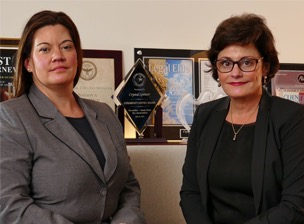Child Custody Lawyer in Pensacola

Florida Child Custody Laws
In Florida, child custody goes by the name of timesharing, and a child custody agreement is known as a parenting plan. The policy of the state is for both parents to maintain frequent and continuing contact with their children after a separation, and to share in the rights and responsibilities of raising a child.
What Do Judges Look for In Child Custody Cases in Florida?
In all issues involving children that come before the court, the best interest of the child is always the primary consideration for a family law judge. This means that a judge has the ability to grant custody primarily or solely to one parent alone, when convinced that sole custody would be in the child’s best interests. The authority to grant sole custody includes both the matter of physical custody (the parent with whom the child lives) as well as legal custody (the authority to make decisions regarding a child’s education, healthcare, religious upbringing and other areas of child-rearing).
Here are some of the most important things that judges look for in Florida child custody cases:
Examine the Past Behavior of the Parents
If the parents cannot agree between themselves on the issue of timesharing, then the judge will make that decision for them in court. The judge will take a look at the past behavior of both parents. Why? The judge will need to examine this behavior in an effort to determine how you might act in the future.
As an example, if you have been sent to anger management in the past, it may be reasonable to conclude that you might need it in the future. This could prompt the judge to award majority parenting time to the other parent. Were you ever charged with domestic violence earlier in life? This charge could wind up coming back to haunt you, even if you have been living a clean life of late. Other criminal charges/convictions (such as drunk driving) could also be factored into the judge’s decision.
The Preferences of the Child
If the court decides that the child is old enough and mature enough to offer meaningful input into the matter, the judge may ask the child what their preference is for primary custody. Depending on the family situation, this could either be a very easy decision for the child or a very difficult and stressful one. This process might be handled in private between the child and judge or the judge could ascertain the child’s preferences through a custody evaluator. Either way, if your child is old enough, he or she might wind up being one of the factors in determining how the judge decides the custody case.
What Does a Judge Ask a Child in a Custody Case?
The specific questions that a judge might ask a child in a custody case vary depending on the unique circumstances of each case. And if a judge decides to question a child directly, it is almost always done in private without either of the parents being present. Some possible questions the judge might ask a child in a custody case include:
- How well do you get along with your mom and with your dad?
- How much time do each of your parents spend with you?
- What do you like to do with your mom for fun?
- What do you like to do with your dad for fun?
- What are some of your hobbies and interests?
- What activities do you enjoy in school?
- What are some of your favorite things you like to do with your family and friends?
This is just a small sampling of some of the questions that a judge might ask a child during a custody case. They may ask some or all of these in your case, and there could be different questions as well. The important thing to keep in mind is that, in cases where parents disagree over child custody, the judge has the final decision. Children may be asked questions if the court determines that their input would be helpful, but the child’s preference not the final word. That belongs to the court – again based on the child’s best interests.
Florida Shared Parenting Plans
The state prefers that parents discuss and decide together major decisions that will affect their child. As always, a parenting plan must be approved by the judge based, and shared parental responsibility is not appropriate in all cases. In 2018, Florida also enacted a new law that encourages parents to use a Standard Parenting Time Plan suggested by the court if they are unable to develop a workable plan on their own.
Get Help with Complicated Florida Child Custody Matters
Crystal Collins Spencer offers thoughtful, practical advice in Florida child custody and support matters, and provides assertive and effective advocacy in court as needed to fully represent your interests. In Pensacola, Destin, Fort Walton Beach & Panama City, contact Spencer Law, P.A. for assistance with your Florida family law needs.


